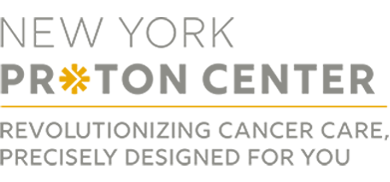NYPC Investigates Use of FLASH Radiation Therapy
NYPC researchers are conducting studies in partnership with oncologists at Memorial Sloan Kettering Cancer Center, Montefiore Einstein Cancer Center and Mount Sinai Health System.
Landmark trial found FLASH RT with protons to be effective and feasible in the first in human study.
New York, NY, February 16, 2023 — The New York Proton Center (NYPC) today announced it is launching three new FLASH radiation therapy (FLASH RT) mouse model studies that will examine the use of FLASH RT to improve treatment of lung, pelvic and abdominal tumors. NYPC researchers are conducting the studies in partnership with oncologists at Memorial Sloan Kettering Cancer Center, Montefiore Einstein Cancer Center and Mount Sinai Health System.
In comparison to traditional photon radiation therapy that is delivered for several minutes daily over days to weeks, FLASH RT with protons is delivered in a fraction of a second typically over just one day and can spare normal tissue to a greater degree while maintaining similar or even improved tumor control. By enabling ultra-high dose-rates with targeted precision, FLASH RT reduces treatment time significantly and has been shown to ease pain while reducing typical side-effects.
The research team at NYPC is led by Dr. Charles B. Simone II, co-author of the first ever clinical trial on FLASH radiotherapy, of which the trial findings were recently published in JAMA Oncology in January 2023.
“Advancing the science of radiation therapy is core to our work, and we are excited to lead three new studies examining the benefits of FLASH with our partners at Memorial Sloan Kettering, Montefiore and Mount Sinai,” said Dr. Charles B. Simone II, Chief Medical Officer of the New York Proton Center. “Preclinical studies have consistently shown FLASH can reduce both acute and late toxicities. Continuing to investigate the efficacy of FLASH – both in preclinical studies and clinical trials – will help ensure that the potential benefits of this treatment are optimized and made more accessible as a potentially transformative and life-changing option for patients with a wide range of complex cancers.”
Montefiore-NYPC Proton FLASH landmark studies are being conducted under the leadership of Chandan Guha, MBBS, PhD, Associate Director, Innovation/Tech Transfer, Montefiore Einstein Cancer Center, Director of Einstein Institute of Oncophysics and Vice-Chair of Radiation Oncology, Montefiore and Albert Einstein College of Medicine.
Dr. Guha investigates pre-clinical and clinical research with particle therapy, such as proton and heavy ion beams, especially for the treatment of gastrointestinal malignancies, such as pancreatic cancer. Montefiore Einstein Cancer Center was the first U.S. location to earn a National Cancer Institute grant to study heavy ion beams.
“The goal is to deliver curative doses of radiation to the tumor without causing serious toxicities in the gastrointestinal tract,” said Dr. Chandan Guha, Vice Chair of Radiation Oncology at Montefiore Einstein Cancer Center. “If successful, proton FLASH therapy could become an effective tool in the therapy of these deadly cancers.” Under the mentorship of Dr. Guha were Dr. Brett Bell, a Einstein MSTP (Medical Scientist Training Program) student, and Dr. Michael Pennock, a radiation oncology resident, who worked with a team of NYPC medical physicists.
The second study, conducted in partnership with Memorial Sloan Kettering Cancer Center, is investigating the impact of FLASH RT for treating tumors, testing the hypothesis that part of the protective effect of FLASH treatment comes from rapid consumption of oxygen in the normal tissues, which can be measured by observing the DNA damage response. In addition, the role of suppression of innate immune signaling will be investigated in the tumor microenvironment following treatment.
“The promise of FLASH RT is to reduce side effects, while preserving the effectiveness of treatment. By understanding the mechanism of action of FLASH RT, the goal is to maximize the therapeutic window,” said Dr. Simon Powell, Chair of Radiation Oncology at Memorial Sloan Kettering Cancer Center.
The New York Proton Center is the fastest growing of the 41 proton centers in the United States and is the only provider of proton therapy in New York state. The Center treats the most complex caseload of any proton center nationally and has distinguished itself as an industry leader in research, with more than 97% of patients enrolled on determinative clinical trials that will help advance science and broaden access to proton therapy.
About the New York Proton Center
The New York Proton Center is creating the gold standard for proton therapy, giving new hope to patients living with cancer. In partnership with leading academic medical centers—Memorial Sloan Kettering Cancer Center, Montefiore Health System, Mount Sinai Health System—the New York Proton Center brings together expert oncologists, clinical care teams, and researchers to improve cancer care and advance the clinical evidence for proton therapy.
For additional information, please visit www.nyproton.com.
